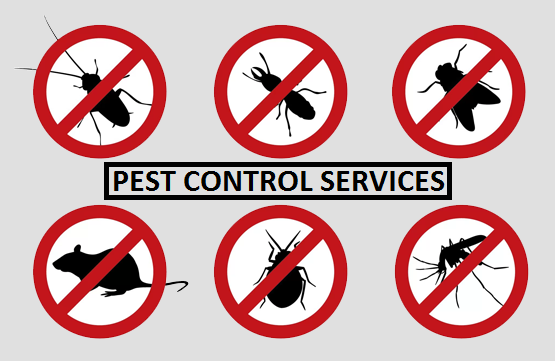Pest Control Clovis: Remove Vermin Finally
Understanding the Various Strategies to Parasite Control: A Comprehensive Overview

Natural Insect Control Techniques
Using green strategies such as companion planting and biological pest control is necessary for properly taking care of parasites in farming setups. Friend growing entails expanding various plants in distance to hinder parasites, enhance nutrient uptake, and improve total plant wellness. Growing marigolds together with tomatoes can help fend off nematodes. Similarly, intercropping maize with legumes can disrupt the reproduction patterns of parasites like corn borers.
Organic parasite control includes introducing all-natural predators or pathogens to manage pest populations. Ladybugs, for circumstances, eat aphids, managing their numbers without the need for chemical pesticides. An additional example is using Bacillus thuringiensis (Bt), a germs that targets particular insect pests while being safe to people, animals, and beneficial bugs.
These environment-friendly methods not just decrease the reliance on artificial pesticides yet also help preserve biodiversity and soil health. By incorporating all-natural pest control strategies right into farming practices, farmers can attain sustainable pest administration while decreasing unfavorable influence on the atmosphere.

Chemical Insect Control Solutions
Along with natural insect control techniques, the utilization of chemical insect control options plays a significant role in successfully taking care of pest populaces in agricultural atmospheres. Chemical bug control remedies are formulated to target particular bugs that might create extensive damage to crops. These services usually contain synthetic pesticides that are developed to remove bugs promptly and successfully.
Among the key advantages of chemical insect control services is their efficiency in managing insect invasions widespread. Farmers can apply these options utilizing different techniques such as splashing, airing out, or seed therapy to shield their plants from unsafe pests, weeds, and diseases. Additionally, chemical bug control remedies are relatively easy to use and can give quick outcomes, assisting farmers protect their yields and decrease financial losses.
Nonetheless, it is crucial to make use of chemical insect control solutions deliberately to lessen potential adverse effects on the environment, non-target microorganisms, and human health. Correct application methods, adherence to safety standards, and regular tracking are essential to ensure the accountable use of chemical bug control solutions in farming practices.
Organic Pest Control Approaches
Organic pest control comes close to utilize natural killers or virus to take care of insect populaces in agricultural settings properly. This method supplies a environmentally find out friendly and lasting solution to pest administration, reducing the reliance on artificial chemicals and minimizing harm to the atmosphere. One usual biological control method is the intro of all-natural enemies, such as ladybugs or parasitic wasps, to target certain parasites. These predators feed upon the bugs, aiding to control their populations naturally - pest control clovis.
Another organic control technique includes using pathogens like bacteria, fungi, or viruses to infect and kill parasites. Overall, biological parasite control strategies use a lasting get more and targeted service to pest management in agriculture.
Integrated Parasite Administration (IPM)
Integrated Pest Management (IPM) is a thorough method that combines numerous pest control methods to efficiently manage and lessen pest populations in farming systems. IPM focuses on lasting prevention of insects via a mix of biological, social, physical, and chemical control techniques. By incorporating these various approaches, IPM aims to decrease dependence on chemical pesticides, minimize ecological influence, and promote lasting pest monitoring practices.
One secret facet of IPM is the use of biological controls such as all-natural killers, bloodsuckers, and pathogens to control bug populaces. This technique takes advantage of the power of nature to keep a balance between bugs and their all-natural enemies without causing harm to the atmosphere.
In addition, IPM entails cultural methods like crop sanitation, habitat, and rotation control to produce undesirable conditions for bugs and interrupt their life process. Physical controls such as composts, obstacles, and catches are likewise used to avoid insect invasions.
Mechanical and Physical Insect Control Techniques
Utilizing non-chemical approaches, such as physical and mechanical bug control methods, is a critical facet of thorough bug administration techniques, building check these guys out upon the structure of Integrated Bug Administration's holistic approach. Mechanical parasite control entails the use of physical barriers or catches to avoid parasites from accessing and harming crops or structures. This approach can include techniques like installing displays on windows, making use of row covers in farming, or employing sticky catches to capture insects.
Physical parasite control techniques, on the other hand, emphasis on directly removing bugs through physical methods. Using warmth treatments to get rid of bed bugs or vacuuming up parasites like spiders or ants can be efficient ways to handle problems without the usage of chemicals. By incorporating these physical and mechanical pest control methods right into an Integrated Insect Monitoring plan, specialists and people can decrease dependence on pesticides while still effectively taking care of pest populations and lessening damage.
Final Thought

In addition to all-natural pest control techniques, the usage of chemical parasite control services plays a substantial role in properly handling pest populaces in farming settings.One of the crucial advantages of chemical insect control solutions is their performance in regulating pest invasions on a huge range.Integrated Pest Management (IPM) is an extensive strategy that integrates various pest control strategies to efficiently manage and decrease pest populaces in farming systems.Using non-chemical techniques, such as physical and mechanical parasite control techniques, is an important aspect of thorough pest administration strategies, developing upon the structure of Integrated Pest Administration's all natural method. By including these mechanical and physical insect control strategies into an Integrated Insect Monitoring strategy, individuals and experts can decrease dependence on chemicals while still effectively minimizing and handling pest populaces damages.